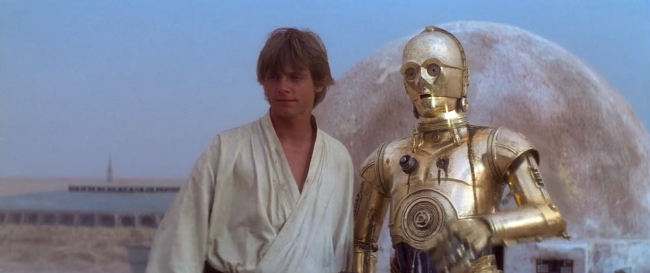
I chose to observe Star Wars Day this year by watching Star Wars--that is, A New Hope, the 1977 movie that started it all. I'd been meaning to since watching Andor and since I'd seen many comments from people flatly asserting that Star Wars has no artistic merit and limited entertainment value. Since then, I've been thinking of the reasons why audiences might be losing touch with the franchise.
What are some of the reasons it's hard for people to-day to understand the impact of the first film? One thing that strikes me about it is how much it hinges on Luke finding his way. Luke really is a solidly conceived and executed character. We see his restlessness, his teenage petulance, his longing for escape and something bigger he doesn't quite understand when looking at those twin suns.
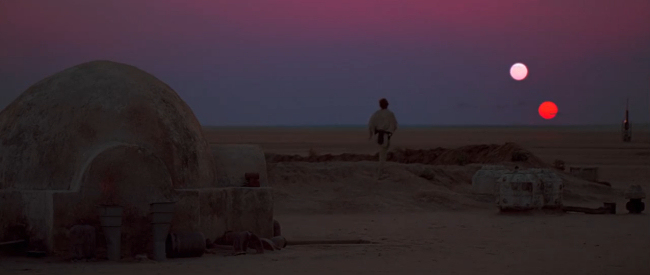
It's hard to overstate the importance of John Williams' score which continually broadens the scope of everything we see.
Luke doesn't just want to leave Tatooine, he wants to fight. He wants to join the Imperial Academy like Biggs and it's implied he'll use that as a jumping point to join the Rebel Alliance. Andor makes it clear the kind of daily impact the Empire has on an ordinary citizen but Luke's desire to fight is more fundamental than saving the galaxy or even in acheiving personal validation. He's reckless enough to check out the Sand People after he's already recovered R2D2. He has his big rifle and it seems he's looking for an excuse to fight.
When his aunt and uncle are killed, he's solemn and awed. He doesn't seem to feel much grief, not like he does when Obi-Wan dies.
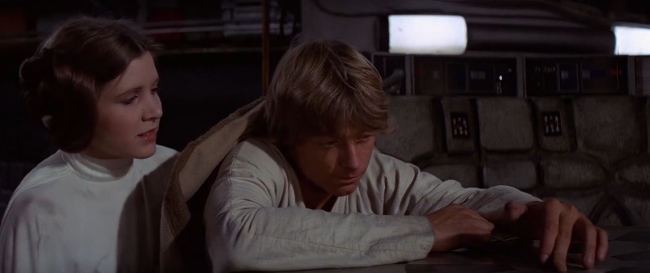
Obi-Wan and Han Solo present two models for Luke for how he might fit in with society, how he might satisfy his needs while maintaining positive connexions with other people. Obi-Wan dazzles Luke with stories of "crusades" and honourable warfare he embarked upon with Luke's absent father, the original missing male role model. Alec Guinness' performance conveys a profound inner peace Luke knows nothing about but Obi-Wan presents him with a path of wisdom and discipline to achieve it. Meanwhile, Han shows how a man sometimes needs to put his pragmatism ahead of a sense of honour or duty. Ultimately, it's of course Obi-Wan who exerts more influence.
I suppose these things might not connect with younger audiences to-day. The MCU movies tend to be about people who are already grown. But even young Peter Parker is too squeaky clean to have the kind of urges Luke has (Peter Parker in the comics, or the Sam Raimi films, is another story). I suppose it's possible this generation doesn't like stories about a protagonist having a dark side, or stories where such impulses are natural and must be managed and taught to find satisfaction in acceptable ways.
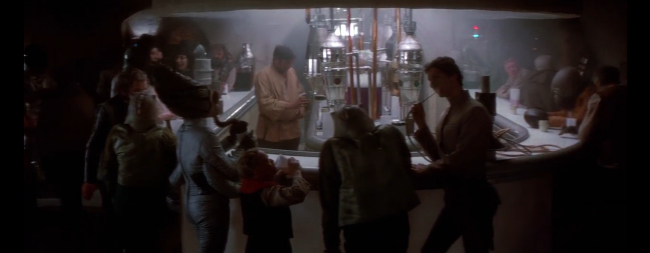
A New Hope is primarily told from Luke's point of view and this is what makes the cantina scene so effective. He'd clearly never seen so many aliens in one place before--not just in terms of species but in terms of people not from his world. The initial audience for Star Wars would have been as bewildered as Luke. Luke has some experience dealing with people. A human from another planet might be mysterious indeed but Luke would have some ready understanding of facial expressions and mannerisms. The cantina drops a sea of new and inscrutable expressions and customs. There are faces he can't read, associations he can't rely on (one guy literally looks like the Devil). Even the humans have peculiar hairstyles and wear strange things.
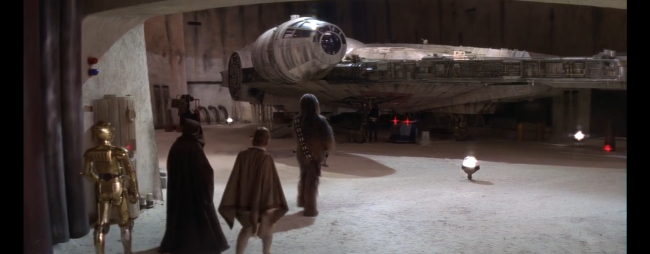
He calls the Millennium Falcon a piece of junk. How true is that really, though? What is Luke's frame of reference? Probably the equivalent of magazines and catalogues which showcase products in their ideal forms. Han does have a valuable lesson for Luke about what it's like to actually live in the galaxy.
I found myself thinking of Kimetsu no Yaiba, the mega-hit anime franchise. It starts out a lot like Star Wars. The protagonist, Tanjiro, is a teenager who comes home to find his family slaughtered and his sister transformed into a demon. He meets an old master who trains him and he's obliged to go to a world that's culturally alien to him. The substantial difference between Tanjiro and Luke is that Tanjiro is not established with any previous desire to leave home. He was quite content in his domestic lifestyle and now his primary motive is to cure his sister so that they might some day return to a semblance of happy, normal life. It's his sister, Nezuko, who has the violent impulses that must be managed and they're implicitly abominations, causing Tanjiro to feel shame and horror.
Domesticity and creature comforts may be the true religion of Japan but maybe prioritising them is no longer so uniquely Japanese. Maybe people all over the world are more passive than they used to be and the desire to fight and conquer is no longer felt. Or at least, maybe it's no longer consciously acknowledged.

No comments:
Post a Comment